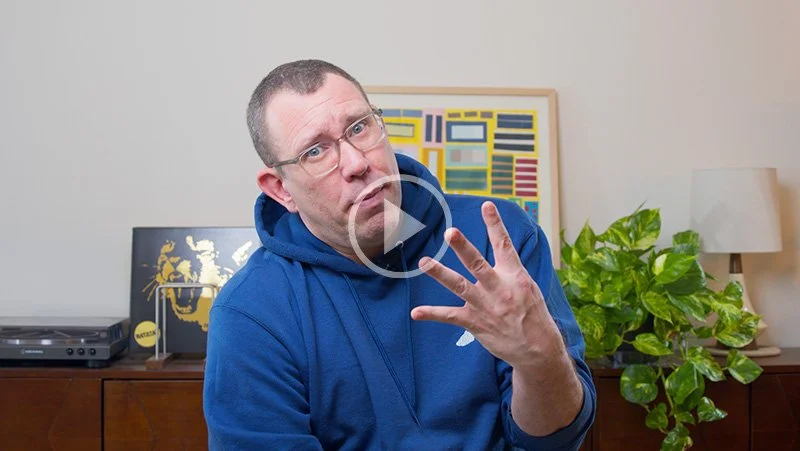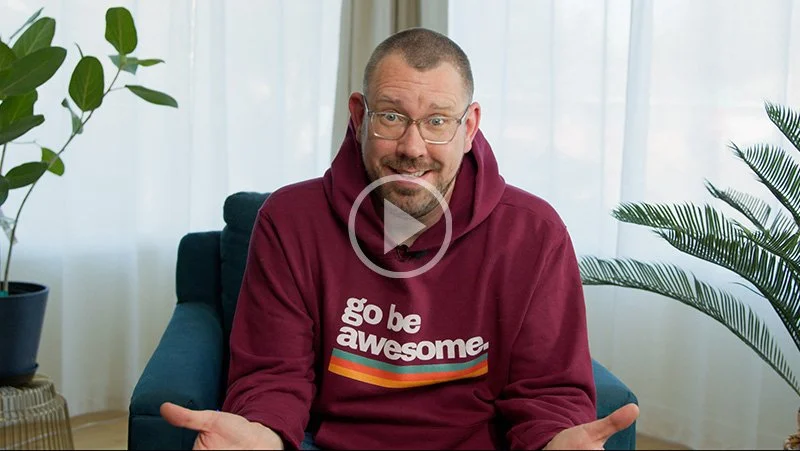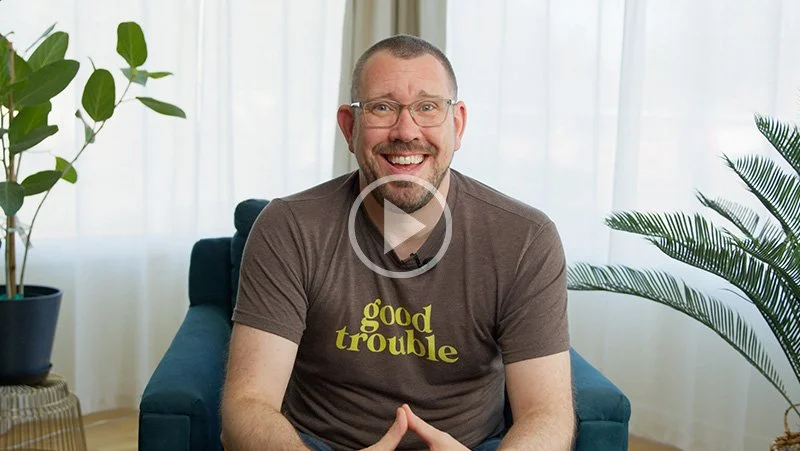The Best Questions to Ask in Job Interviews
Welcome to the #culturedrop. Every Tuesday, Galen Emanuele emails tools to advance leadership skills, team culture, and personal growth. No spam, just great content. Sign up now to get it in your inbox.
People who interview well land better jobs, hands down.
Interviewing is a skill in and of itself. Many people don't realize how important this is to have this in your skill set. You can have the right experience, be an awesome employee, and even be the best candidate for the job, but if someone else is way more skilled at interviewing than you are there’s a decent chance that they’ll ultimately get the job over you.
Asking great questions is one way to massively level up your interview game. First, I’m going to cover why it's so important for you to come in asking great, juicy questions and then I’ll share a list of some of my favorite questions to ask in interviews, regardless of the position or company that you’re applying for.
Why asking great interview questions matters.
1. It gives you a lot of insight into the company and leadership that you're applying to work for.
“A job interview is not about you begging for them to give you a job. It’s an opportunity for you to interview them, and learn about them.”
It gives you a chance to find out what their culture is like, what their leadership style is like. It can give you a sense of where they’re headed as a company and what their challenges are. It’s also a chance for you to see how honest and transparent they are with you about what the company is really like.
A job interview is not about you begging for them to give you a job. It is an opportunity for you to interview them, and learn about them, to see who they are and if it's a good fit for both of you to work there.
2. It makes you stand out as a candidate, big time.
“...the one who asks a lot of great questions will almost always be the one who lands the job.”
I've been part of many interviews and much of my work with companies involves interacting with people who do a lot of hiring (and firing) and the resounding truth is that if two candidates come in to interview and one asks a ton of really great, intelligent questions, and the other one asks hardly any, the one who asks a lot of great questions will almost always be the one who lands the job.
Asking great questions lets them know what kind of employee you're likely going to be; that you're curious, intelligent, confident, self-aware, discerning and inquisitive, and intentional about who you work for and who you'll be working with. All of those traits denote high emotional intelligence and in the process it lets them know a little bit more about you by what you’re curious about.
3. It allows you to turn the buyer into a seller.
“You have an opportunity to switch the power dynamic and have them sell their culture, their company, their leadership to you.”
There’s some psychology involved here that can be used to your advantage. In job interviews there’s a dynamic of power and authority at play that you are there selling them on you, and your skills and experience, and why they should hire you.
However, in any situation, the person who’s doing the “selling” is in a more vulnerable position than the one who’s asking the questions and making the decision. You have an opportunity to switch the power dynamic and have them sell their culture, their company, and their leadership to you. Doing this offsets and rebalances what’s at play to your advantage.
And that’s not a deceptive or manipulative thing to do, it’s just the truth that you want to come in and make sure that the company is a good fit for you too. Asking a lot of juicy questions will make it so that they also have to do some selling in the process which creates more of an even playing field.
Here’s a list of great interview questions.
These are not necessarily in any particular order. As with everything, use some discretion around when you ask these questions and in which order based on the context and dynamics of the interview.
You’re looking for if they’re willing to be vulnerable and honest with you about who they are and their challenges and weaknesses, as well as how they focus on culture. How do they talk about culture inside the organization? Can they speak intelligently about it, is it something that they prioritize?
Based on their answers to these, there are lots of opportunities to follow up with additional questions and dive deeper depending on how they respond. Feel free to dig deeper; if something they say causes you to want to learn more, don’t be shy, ask and learn.
How would you describe the company culture here? Also, how would the team here describe the company culture?
Of your most vocal employees, what would they say is their least favorite part about working here or about your culture?
Hopefully whoever will be your direct supervisor will be there in the room, if they are make sure to ask them:
How would you describe your leadership style?
What's your communication style like?
How do you like to give and receive feedback?
What does it take for somebody stepping into this role to absolutely crush it and be exceptional here? What do you value the most about somebody working on the team, in terms of how they perform the role as well as how they impact everyone else on the team?
What are some medium and long-term goals for this position and the company?
So where do you see this position 1 year from now, 3 years from now?
Where do you see the company 1 year from now, 3 years, 5 years, 10 years from now?
What are some of the biggest challenges that the company is facing right now, or that this team is facing right now?
When it comes to the leaders inside the organization, what types of things do you look for to determine if someone will be a great leader here?
I like this last one one a lot. Definitely save this for towards the end of the interview after you spend a lot of time getting to know each other:
“Of everything you've heard from me and my experience, what concerns or hesitations would you have about me in this role, based on my experience or your impression of me and anything that we’ve talked about today?”
“Asking great questions speaks volumes to about your character and it may very well end up being the reason you land the job.”
Those are the kind of things that you really want to know about a company. And while you’re learning a lot about them, you're also standing out as a candidate who is self-aware, intelligent, intentional, curious, and discerning.
Asking great questions speaks volumes to about your character and it may very well end up being the reason you land the job.
Want more?
This article was created by Galen Emanuele for the #culturedrop. Free leadership and team culture content in less than 5 minutes a week. Check out the rest of this month's content and subscribe to the Culture Drop at https://bit.ly/culturedrop







